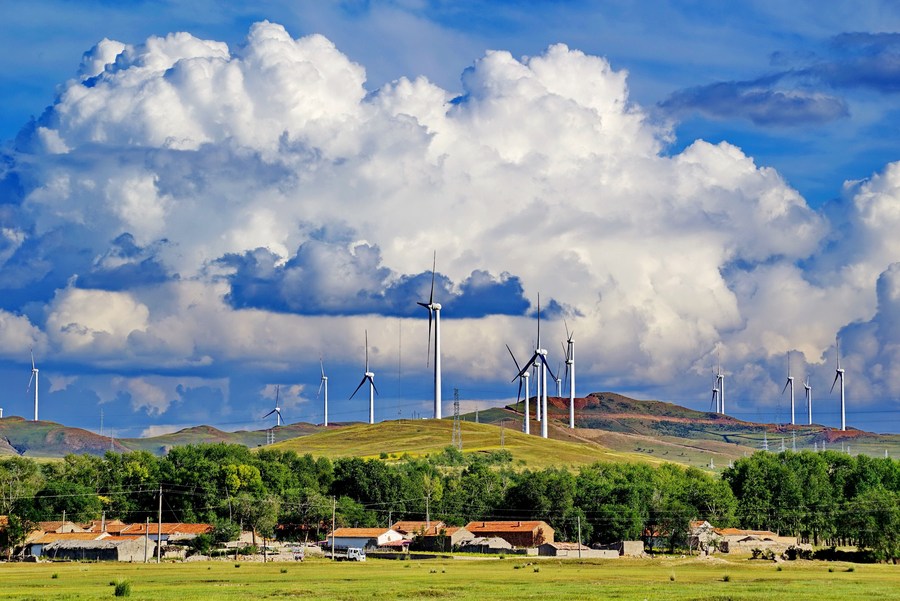The specter of a scorching summer


As the relentless march of climate change accelerates, the specter of a horribly hot summer has become an increasingly ominous reality. Year after year, temperature records are shattered, and the frequency and intensity of extreme heat events have escalated to unprecedented levels, posing grave threats to human health, ecological balance, and the viability of our societies. This dire scenario demands a comprehensive, multifaceted response rooted in reason, empathy, and international cooperation, lest the ravages of a scorching summer become an inescapable reality.
The alarming acceleration of extreme heat
Scientific evidence paints a grim picture of the future, with climate models projecting a dramatic increase in the frequency, intensity, and duration of heat waves across the globe in the coming decades. The trends are already alarmingly clear, as the summer of 2023 saw a series of scorching events that exposed the vulnerabilities of human and natural systems. From the heat domes that enveloped the American West to the sweltering conditions that strained infrastructure and livelihoods across Europe and Asia, the consequences of these escalating heat waves are far-reaching and increasingly catastrophic.
Power grids are pushed to their limits, water resources become severely strained, and vulnerable populations, such as the elderly, the young, and those with pre-existing medical conditions, face grave health risks. The impact on agriculture is particularly dire, with crop yields plummeting and food security imperiled in many regions. And the ecological toll is equally devastating, as fragile ecosystems from tropical rainforests to alpine meadows struggle to cope with the relentless thermal stress.
Urban hotspots and the amplification of suffering
The plight of cities in the face of a horribly hot summer is especially dire, as the urban heat island effect exacerbates the crisis. Densely populated urban centers, with their abundance of heat-absorbing surfaces and lack of greenery, trap and amplify the oppressive heat, creating veritable furnaces that compound the suffering of their residents.
In these urban hotspots, the disparities in access to cooling resources and resilient infrastructure become painfully evident. Marginalized communities, often relegated to the most vulnerable neighborhoods, bear the brunt of the crisis, lacking the means to adequately shelter from the scorching temperatures or access essential medical care. The widening of existing social and economic inequalities is a grim reality that compounds the human toll of these extreme heat events.
The cascading effects of a scorching summer on urban systems are truly alarming. Power grids may collapse, public transportation networks may grind to a halt, and essential services like healthcare and emergency response could be overwhelmed. The damage to critical infrastructure, from roads and bridges to water treatment facilities, could paralyze cities for months, exacerbating the suffering and disrupting the livelihoods of millions.
Global interconnectedness and the compounding crises
The reverberating impacts of a horribly hot summer extend far beyond the local or regional scale, as the world's economies and supply chains are deeply interconnected. Disruptions to agricultural production, transportation networks, and industrial operations in one part of the globe can ripple across the world, triggering a cascade of crises that undermine global stability and prosperity.
The potential for supply chain breakdowns, energy shortages, and financial upheaval in the wake of a scorching summer is a chilling prospect. Such disruptions could exacerbate existing geopolitical tensions, fuel social unrest, and threaten the livelihoods of countless individuals. The specter of mass migration driven by climate-induced disasters further complicates the landscape, testing the limits of international cooperation and humanitarian response.
Adapting to the new normal: resilience and global coordination
Confronting the looming threat of a horribly hot summer will require a multifaceted, coordinated response that spans multiple sectors, such as the realms of policy, technology, and international cooperation. Governments, the private sector, and civil society must come together to invest in resilient infrastructure, develop early warning systems, and implement targeted assistance programs for vulnerable populations.
The development of innovative cooling technologies, water conservation strategies, and renewable energy solutions will be crucial in building adaptively. Additionally, the strengthening of emergency response protocols, the hardening of critical systems, and the enhancement of public health preparedness will be essential in mitigating the human toll of these extreme heat events.
Perhaps most importantly, the challenge of adapting to the impacts of climate change, including the specter of a scorching summer, demands a truly global, collaborative effort. Knowledge-sharing, technology transfer, and the equitable distribution of resources and support must be cornerstones of the international response. Only through such concerted, multinational cooperation can we hope to build a more resilient and sustainable future in the face of this looming crisis.
A moral imperative for climate action
The prospect of a horribly hot summer is a stark reminder of the grave consequences of our collective failure to heed the warnings of climate science and take decisive action to curb global warming. As the planet continues to warm, the frequency and intensity of these extreme heat events will only escalate, posing an existential threat to human and natural systems alike.
Confronting this challenge is not merely a matter of pragmatic necessity, but a moral imperative. The equitable distribution of burdens and the protection of the most vulnerable must be at the forefront of our response. Failure to do so would not only betray our fundamental values of compassion and justice but also undermine the long-term resilience and stability of our global community.
The time to act is now before the ravages of a scorching summer become an inescapable reality. Through a steadfast commitment to reason, empathy, and international cooperation, we must rise to the occasion and chart a course toward a more sustainable, resilient, and equitable future. The stakes have never been higher, and the consequences of inaction are too grave to bear.
China's actions
In the face of climate change, especially the persistent high-temperature problem, China has taken a series of measures and achieved remarkable results. The Chinese government has formulated a series of policies and regulations to address climate change, including the "National Plan for Responding to Climate Change," which clearly defines the goals and tasks for addressing climate change. In terms of energy transition, China has vigorously promoted energy transition, reducing its dependence on traditional fossil fuels and increasing the proportion of clean energy. For example, China has actively developed renewable energy sources such as solar, wind, and hydropower, and has achieved remarkable results.
In energy conservation and emission reduction, China has strengthened energy conservation and emission reduction efforts in industries, transportation, and the construction sector, and has promoted a series of energy-saving and emission-reduction technologies and measures, improving energy efficiency and reducing greenhouse gas emissions. Additionally, in ecological protection, China has strengthened the protection and restoration of ecosystems, increasing the area of forest, grassland, and wetland ecosystems, and improving the carbon sequestration capacity of ecosystems.
China has also actively participated in international climate change cooperation and promoted the process of global climate governance. For example, China has proposed the goal of "carbon peaking and carbon neutrality" and has actively advocated the concept of green development internationally. These measures and achievements have not only laid a solid foundation for China's own sustainable development but have also made important contributions to global climate change mitigation.
The author is a Beijing-based commentator. The views don't necessarily reflect those of China Daily.
If you have a specific expertise, or would like to share your thought about our stories, then send us your writings at opinion@chinadaily.com.cn, and comment@chinadaily.com.cn.


































